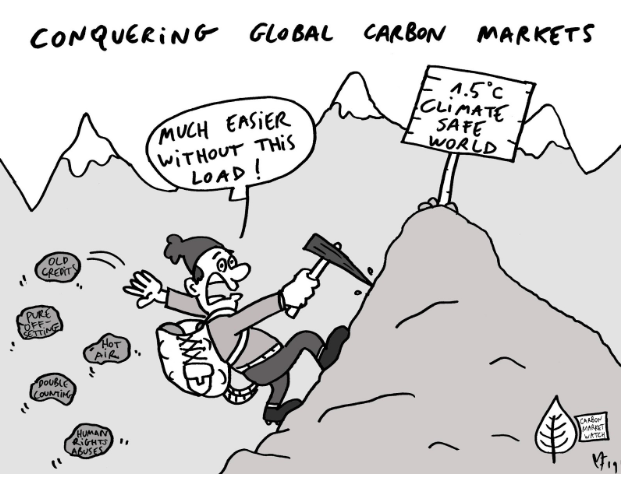Young Indigenous Peoples Call On States to #FixArticle6
ECO is happy to share this part of our platform with the Indigenous Peoples Caucus to help amplify their voice.
Today young Indigenous Peoples from across the world took collective action on the floor at COP25, calling on states to #FixArticle6.
World governments are currently negotiating the technical advice for the implementation of Article 6 of the Paris Rulebook. Article 6 relates to the creation of both market and non-market mechanisms to reduce emissions. The outcomes of the negotiation must uphold and extend existing protection of human and Indigenous rights. Just like we need ambitious commitments in all climate mitigation strategies. It is not just the inclusion of human rights that the indigenous caucus is calling for, but, the inclusion of indigenous rights. It is specifically about protecting collective rights, which are crucial to the customary governance and traditional ways of life of Indigenous Peoples.
Words, prayers, songs, and chants were propelled across Hall Four by young Indigenous People in an attempt to remind negotiators of the human element inherent in Article 6. Ta’kaiya Blaney Tla’Amin, Nation Coast Salish delegate, shared her frontline experiences of fossil fuel expansion, enabled by state governments within the occupied territories of so called Canada, “…this looks like Teck Mine, this looks like coastal Gaslink pipeline, the Trans-mountain pipeline and many more industrial mega projects that Canada pushes through – meanwhile claiming to be a climate leader.
... Read more ...

